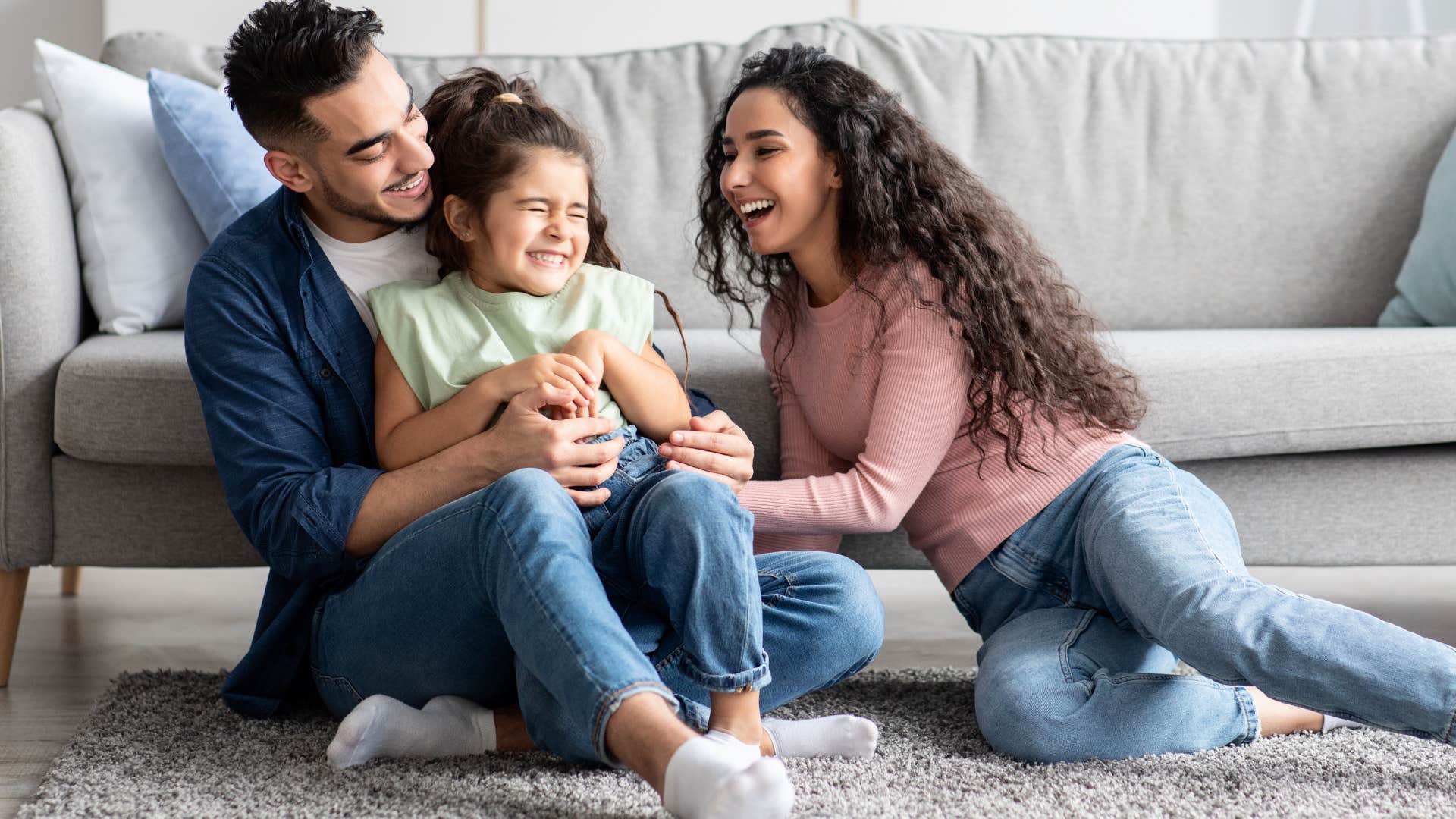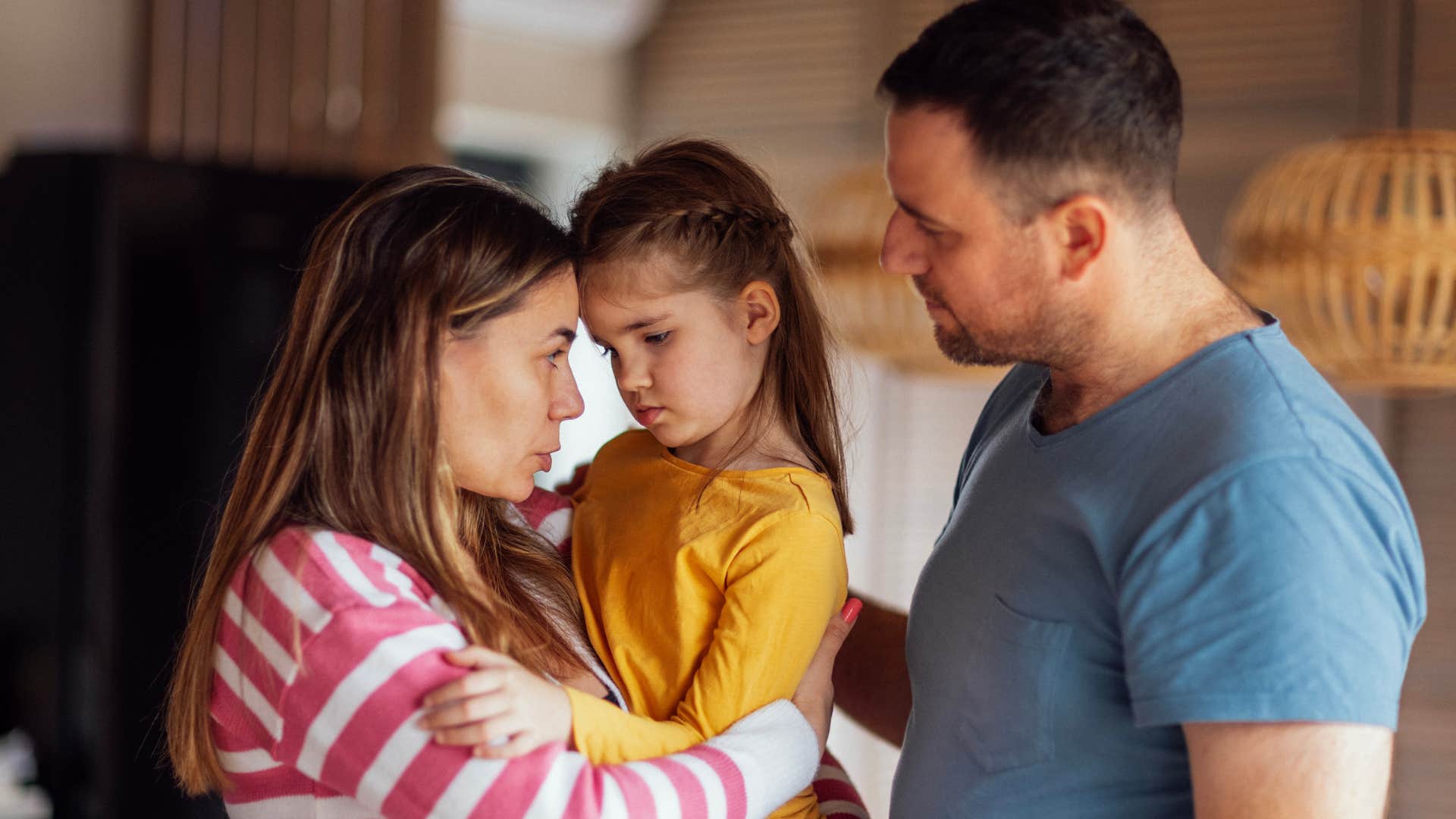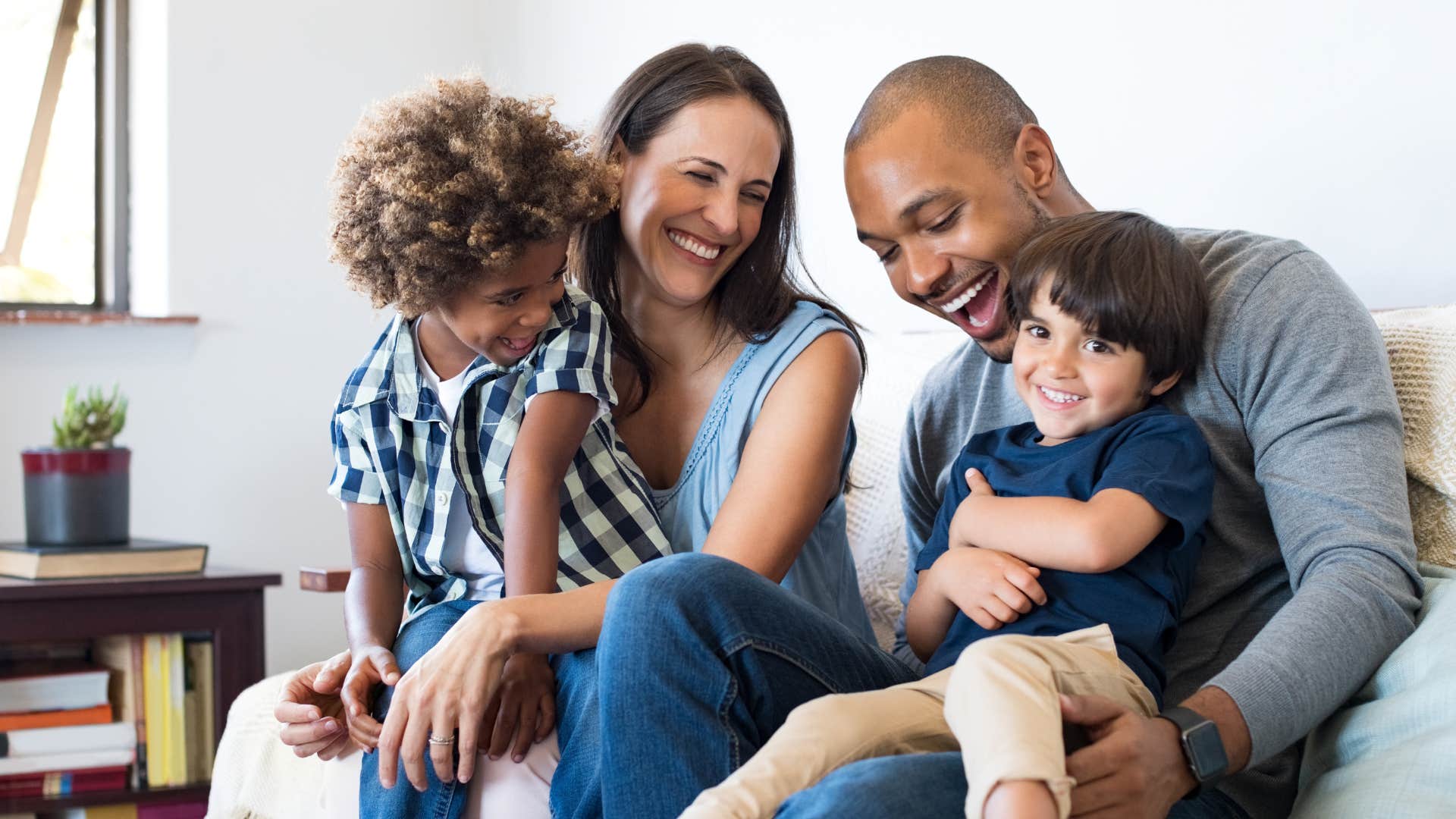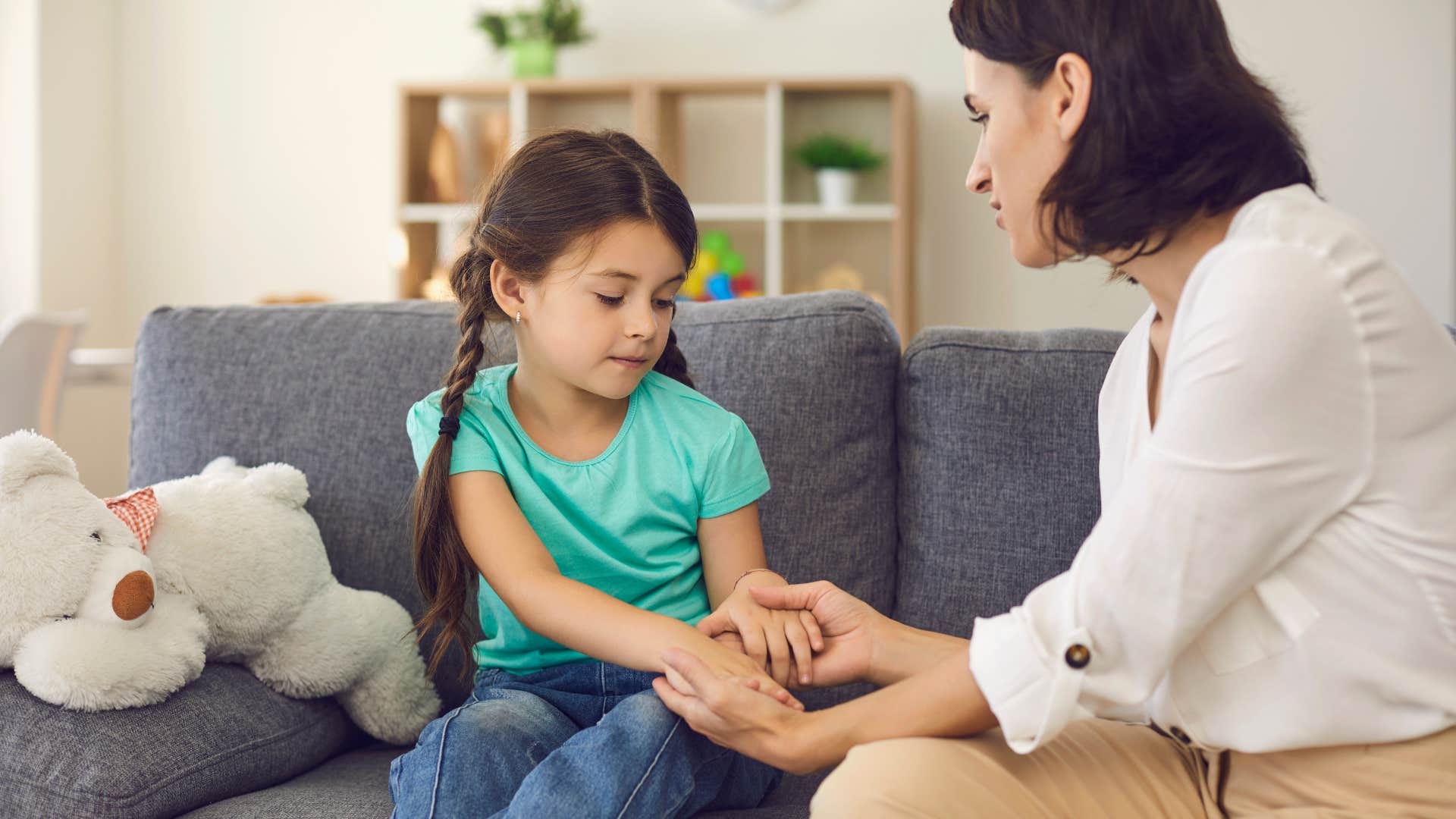If You Didn’t Grow Up To Be A People Pleaser, Your Parents Did These 11 Things Right
It's amazing what setting boundaries and having open conversations can do to a kid's self-confidence.
 Norb_KM | Shutterstock
Norb_KM | Shutterstock Many children develop harmful adult behaviors and coping mechanisms as a response to their childhoods. Whether it was a toxic relationship with a parent or an unresolved traumatic event they’ve struggled to heal from. According to social worker Danielle Wade, most children who grow into people-pleasing adults had consistently unmet emotional needs in childhood, causing them to develop low self-esteem and a consistently anxious mentality.
However, on the other side of the aisle, if you didn’t grow up to be a people pleaser, you likely had healthier parents who consistently did certain things daily to promote and celebrate your health and well-being.
Here are the 11 things your parents did right if you didn’t grow up to be a people pleaser:
1. They welcomed uncomfortable conversations.
 Prostock-studio | Shutterstock.com
Prostock-studio | Shutterstock.com
Emotional well-being and coping skills start with open communication, which many adults learn early in life from their parents. Without the embrace of discomfort in conflict and arguments, nobody has the foundation to address their emotional needs.
Parents who teach their kids to embrace this discomfort and practice their emotional expression give them the tools to succeed in their relationships later in life—not just their intimate and platonic ones but also the ones they keep with themselves.
2. They checked in with you emotionally and physically.
 Dasha Petrenko | Shutterstock.com
Dasha Petrenko | Shutterstock.com
Parents who don’t commit to checking in with their kids and meeting them where they are emotionally often spark people-pleasing behaviors in their kids, as they’re less likely to have fulfilled self-esteem and the self-awareness skills necessary to advocate for themselves.
According to a study from the Journal of Adult Development, a lack of emotional support from parents in childhood doesn't just have impactful consequences on emotional, social, and coping skills; it also tends to spark long-term physical issues like fatigue and chronic pain.
3. They tried new things.
 Jacob Lund | Shutterstock.com
Jacob Lund | Shutterstock.com
Parents who instill a “growth mindset” in their children often help them develop better self-awareness, empathy, and social skills in adulthood. To do so, they not only spend quality time with their kids but also encourage them to explore their own passions, try new things, and be generally more open-minded as they navigate their lives.
According to speech pathologist Amy Yacoub, this kind of growth mindset helps kids put in effort and face challenges with optimism rather than opting for constant comfort and stagnancy—the root of many adults' people-pleasing mindsets.
4. They set their own boundaries and didn't allow you to overstep them.
 Ground Picture | Shutterstock.com
Ground Picture | Shutterstock.com
While their children might not enjoy or appreciate a parent’s firm boundaries in their adolescent years, parents who set and reinforce their expectations — emotionally and physically — with their kids equip them to do the same in adulthood.
Parents ' boundaries are fundamental to their kids ' emotional health, from knocking on their kids' doors to teaching them about privacy, saying no when their decisions are challenged, and expressing emotions without judgment.
5. They took accountability for their mistakes.
 Media_photos | Shutterstock.com
Media_photos | Shutterstock.com
Licensed mental health counselor Hannah Alderete argues that parents who don’t take accountability for their mistakes, especially at the expense of their children’s well-being and security, often have a more strained and resentful relationship with their kids. By shifting blame away from themselves and relying on a misguided sense of victimhood, they spark an endlessly anxious mindset in their kids, who suppress their emotions and avoid conflict.
They’re more worried about protecting the peace in their homes and with their parents than expressing genuine emotions and communicating openly. This leads to intense people-pleasing tendencies in adulthood in other relationships and situations.
6. They spoke kindly to themselves.
 Chay_Tee | Shutterstock.com
Chay_Tee | Shutterstock.com
The Child Development and Family Center at Northern Illinois University is adamant about expressing the link between parental behaviors and commitments and their children’s self-esteem. When parents speak kindly about themselves, they teach their kids that it’s a normal and healthy part of nourishing a healthy relationship with yourself. When they set boundaries around committing to other people’s appearances, they decenter toxic societal expectations.
Alongside many other healthy behaviors, great parents ensure they do not place unhealthy expectations or beauty standards on their children. If you didn’t grow up to be a people-pleaser, you have these excellent practices and subtle boundaries to thank.
7. They offered encouragement and praise to their kids.
 Studio Romantic | Shutterstock.com
Studio Romantic | Shutterstock.com
According to research by Utah State University, children who receive consistent positive attention, feedback, and encouragement from their parents are more likely to have higher self-esteem, communication skills, and more fulfilling relationships into adulthood.
With a balance of this encouragement and helpful redirection, healthy parents ensure they’re not engaging in transactional relationships in which children’s needs go unmet, and they feel pressured to seek validation and attention from their parents.
8. They had their own interests and hobbies.
 People Images Yuri A | Shutterstock.com
People Images Yuri A | Shutterstock.com
Healthy parents actively acknowledge the physical and emotional toll that hyperfixating on a parenthood identity can spark. This is especially true for mothers, who tend to experience a profound loss of identity and personhood in motherhood when they’re not intentional about carving space for their individuality, interests, and self-empowerment, as the author Rachel Bertsche explains in her book The Kids Are In Bed.
While this all-encompassing identity might seem beneficial to children with 100% involved and invested parents, the loss of self-esteem, personhood, and individuality they experience is more likely to spark people-pleasing tendencies and unhealthy codependent relationships.
9. They were comfortable showing physical affection.
 NaMong Productions92 | Shutterstock.com
NaMong Productions92 | Shutterstock.com
Whether with their partners or directly with their children, the healthiest parents were comfortable enough in their identity, connections, and personhood to express physical affection in their homes.
According to a study published by the Children and Youth Services Review, this parental warmth has beneficial effects on children’s health and well-being—even combating misbehavior and safeguarding healthy mental and emotional health development.
10. They spent quality time with their kids.
 People Images Yuri A | Shutterstock.com
People Images Yuri A | Shutterstock.com
While quality time between parents and their kids has impactful benefits, research like a study published by the Journal of Marriage and Family suggests that quantity is more important than quality time — especially in families. So, children often have better health outcomes, relationships with their families, and emotional coping skills when they grow up seeing and spending time with their parents frequently — even doing seemingly meaningless things like working in the same room or watching TV together.
11. They disciplined their kids without unnecessary judgment or critique.
 Olena Yakobchuk | Shutterstock.com
Olena Yakobchuk | Shutterstock.com
Many kids with anxious mindsets develop their tendencies from a fear of their parents. They feel mistakenly judged by their parents or overly criticized to an unnecessary standard; they lose a sense of security at home and fall into unhealthy habits that sabotage their self-esteem. To avoid the discomfort of guilt, shame, or embarrassment at the hands of their parents, they choose to keep the peace and repress their emotions to avoid their parent's harsh critique.
Healthy parents criticize without relying on controlling or manipulative tendencies, instead platforming healthy communication, affection, and emotional support.
Zayda Slabbekoorn is a staff writer with a bachelor’s degree in social relations & policy and gender studies who focuses on psychology, relationships, self-help, and human interest stories.

